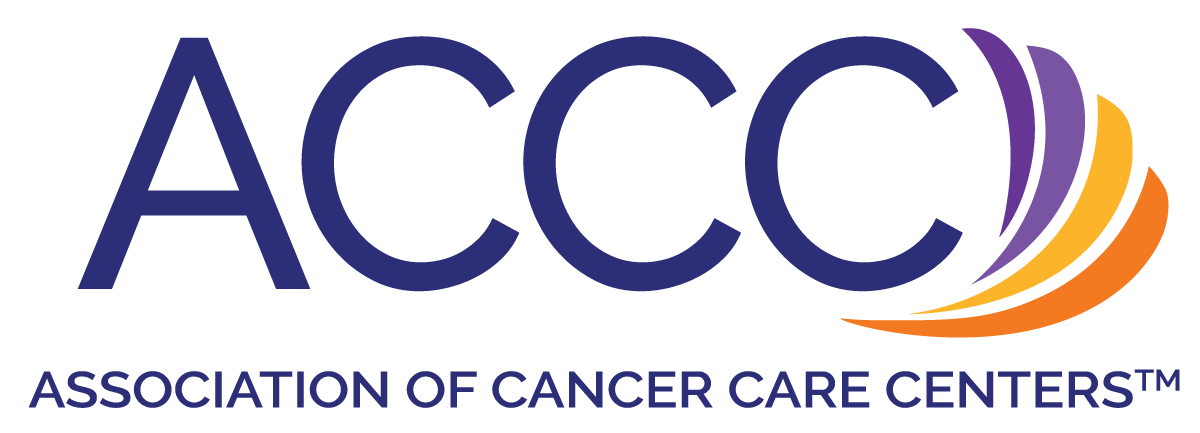
Randall A. Oyer, MD, Becomes President of the Association of Community Cancer Centers

Randall A. Oyer, MD, was named the Association of Community Cancer Centers (ACCC) President for 2020-2021 at the ACCC 46th Annual Meeting & Cancer Center Business Summit held March 4-6 in Washington, D.C.
Randall A. Oyer, MD
Rockville, MD—Randall A. Oyer, MD, was named the Association of Community Cancer Centers (ACCC) President for 2020-2021 at the ACCC 46th Annual Meeting & Cancer Center Business Summit held March 4-6 in Washington, D.C.
ACCC invites each president to select a theme for their year in office that addresses a timely issue in cancer care through the creation of programs and resources. Dr. Oyer announced that the theme of his presidency will be “Community Oncology Can Close the Gap in Cancer Research.”
Dr. Oyer is a practicing medical oncologist at the Ann B. Barshinger Cancer Institute at Penn Medicine Lancaster General in Lancaster, Pennsylvania. He serves as the Medical Director of the Cancer Institute, Medical Director of Oncology, Chairman of the Cancer Committee, Chair of the Oncology Physicians Advisory Council, and Medical Director of the Cancer Risk Evaluation (Cancer Genetics) Program at Penn Medicine Lancaster General. Dr. Oyer is a member of the Cancer Service Line Executive Committee and the Cancer Service Line Quality Committee at the Abramson Cancer Center─University of Pennsylvania, Philadelphia.
Dr. Oyer joined ACCC in 2006. “I was attracted to ACCC’s mission of education and advocacy for the whole team because in cancer care I really think that’s what it’s all about…the whole team. I needed a how-to organization when I took on a new position to develop a cancer program and to build a cancer center, and there was a lot that I had to learn and that my organization had to learn,” he said in an address to attendees at the meeting.
“Over the past year ACCC has heard from our members that there are gaps in community research,” said Dr. Oyer. Respondents to ACCC’s “2019 Trending Now in Cancer Care Survey” identified their top three challenges to offering patients with cancer clinical trials as staff resources and training (53%), program infrastructure (50%), and lack of patient understanding of the clinical trials process (46%). Citing these survey findings, Dr. Oyer remarked: “We have a serious imbalance in our clinical trials work. Our patients are in the community, yet the trials are at academic medical centers. And I believe that ACCC is uniquely situated to close this gap.”
Among the plans to achieve this goal outlined by Dr. Oyer were the following:
- Creating a multidisciplinary taskforce to identify staff/program/patient education resources needed to accelerate implementation of clinical trials in ACCC member practices and programs
- Bringing together experts at the 2020 ACCC Institute for the Future of Oncology forum to share best practices and learn more about challenges and barriers to clinical trials adoption
- Developing a series of articles, blogs, and podcasts on effective practices in clinical trials accrual and management.
We would like to improve our care and access for traditionally underserved communities. We would like to increase sensitivity, awareness, and understanding of the needs specific to geriatric oncology. And we would like to bring precision medicine into the community by understanding how to use the new precision diagnostics and radiology techniques to make sure that our patients have access to these services.
Over the past four years, Dr. Oyer has served as the co-principal investigator and advisory committee co-chair for the ACCC Improving Care Coordination: A Model for Lung Cancer Patients on Medicaid education project. He is an active member of the ACCC Governmental Affairs and Clinical Affairs Committees, participating in Capitol Hill visits and advocating on behalf of community cancer care. Previously, Dr. Oyer served as an Advisory Committee member for the ACCC Molecular Testing education project, and he has presented at numerous ACCC meetings.
In addition to his participation in ACCC, Dr. Oyer has served as a member of the Centers for Medicare & Medicaid Services (CMS) Ambulatory Payment Classification Panel and of the American Society of Clinical Oncology (ASCO) Clinical Practice Committee.
Dr. Oyer is a graduate of Georgetown University and Georgetown University School of Medicine.




































